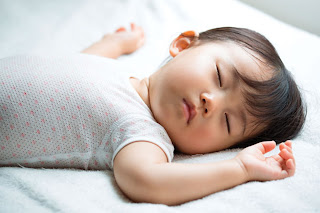Ayurveda Tips for Sound Sleep
Sleep is a harmonious gift that naturally occurs at night. If this harmony is violated, health is impaired as synchronization of sleep – wake cycle with the biological clock maintains bio – rhythm. Sleep is a way to nourish the body, mind and spirit. Ayurveda views restful sleep as important as diet and also essential pillars of good health. Sleep is also a non-suppressible urge.
How much sleep do you really need?
Ideal sleep duration for people of different age groups varies. It is summarized below.
• For newborns (0 – 2 months) is 12 – 18 hours
• For infants (3 – 11 months) is 14 – 15 hours
• For toddlers (1 – 3 years) is 12 – 14 hours
• For preschoolers (3 – 5 years) is 11 – 13 hours
• For school children (5 – 12 years) is 10 – 11 hours
• For teenagers (13 to 17 years) is 8.5 to 9.5 hours
• For adults (above 17 years) is 7 – 9 hours
Benefits of good sleep
Keeps your heart healthy, reduces stress, boosts memory, makes you more alert, helps you to lose weight, reduces risk of depression, nourishes the body and helps body make repair.
Factors that may affect sleep
Night shifts, pain, restless leg syndrome, stimulants, spasms, too much day sleep, anxiety, etc.
Effects of sleep deprivation
Irritability, cognitive impairment, memory loss, impaired moral judgement, increased yawning, hallucinations, impaired immune system, increased risk of type 2 diabetes & heart diseases, tremors, aches.
Measures to induce good sleep
Head massage, body massage, foot massage, Akshi tarpana, Shirodhara, comfortable bedding, warm water bath, drinking warm milk or soups added with ghee, listening to pleasant sounds or music of one’s interest.
Guidelines for better sleep
• One should sleep in left side or supine position. Sleeping in left side will help in enhancing digestion.
• Head position should be towards east or south direction.
• Bedroom should be clean, spacious, ventilated properly, silent, slightly cool and should have a comfortable bed and pillow.
• One should try warm bath prior to bed.
• Dinner should be light to digest and eaten by 7 PM or atleast 2 hours prior to bedtime.
• One should avoid late night sleep, daytime sleep, watching TV or smoking or intake of alcohol or caffeine before sleep.
One third of life is spent asleep. Getting sound sleep each night imparts physical and mental balance to prepare our body and mind for the next day. Hence one should have proper sleep.

Comments
Post a Comment